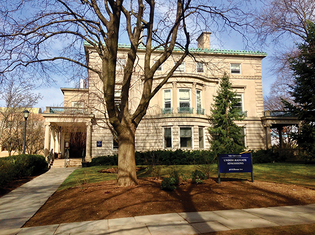
Mark Alden Branch ’86
Yale’s undergraduate admissions office personnel say they do not discriminate against white or Asian American applicants.
View full image
In early October, the US Department of Justice (DOJ) sued Yale for alleged discrimination of Asian American and white applicants. Citing the Civil Rights Act of 1964, the assistant attorney general of the DOJ’s Civil Rights Division—Eric Dreiband—claimed that Yale is “discriminating on the basis of race and national origin.” The suit alleges that Yale engages in “racial balancing” by declining white and Asian American applicants. The press release attached to the complaint reads, “Yale rejects scores of Asian American and White applicants each year based on their race, whom it otherwise would admit.”
That last phrase is what the legal argument will likely hinge upon.
The DOJ is relying on the idea that potential students should be evaluated by “objective” metrics, like standardized test scores and grades. In its complaint, the DOJ claims that applicants with similar grades and test scores have different likelihoods of admission based on their race. Breaking the applicant pool in recent years into deciles based on grades and scores, it alleges, for example, that Black students in the eighth decile are eight times more likely to be admitted than Asian students, and six times more likely than white students.
In its suit, the DOJ excludes “racially favored” subgroups (including applicants who identify as Southeast Asian) from its definition of Asian. It also suggests “race-neutral alternatives” Yale could use to achieve diversity: Yale could give admissions preference based on geography or socioeconomic status, for example, and it could eliminate the preference given to the children of alumni and donors.
In an email to the Yale community, sent the day the suit was filed, President Peter Salovey ’86PhD had a clear message: “Yale does not discriminate against applicants of any race or ethnicity,” he wrote. “Yale’s admission policies will not change as a result of the filing of this baseless lawsuit. We look forward to defending these policies in court.”
Jeremiah Quinlan ’03, dean of undergraduate admissions, also says that Yale does not discriminate in its admissions process. Race, ethnic background, or nationality “are never the only—nor the determinative—factors in any admissions decision,” he says. He sees the suit as part of a larger pattern: “a coordinated legal campaign seeking to overturn long-held Supreme Court precedent.”
The charges against Yale are nearly identical to those in a suit brought against Harvard in 2014. A federal district court and appeals court have ruled in Harvard’s favor, but the case may be destined for the Supreme Court.
The man behind the Harvard suit—and a suit on admissions and race at the University of Texas, which was decided in that university’s favor by the Supreme Court in 2016—is Edward Blum. Called “a one-man legal factory” by the New York Times, Blum has spearheaded dozens of lawsuits over voting rights and affirmative action. Students for Fair Admissions—Blum’s activist group and the plaintiff in the Harvard case—filed a motion to intervene in the Yale suit. If the motion is granted, Blum and his group could continue the suit even if the DOJ drops it in the new Biden administration.
Judging from public statements, the suit has little support among Yale students, including the Asian American community. The Asian American Student Alliance and several affiliated groups issued a statement in August decrying the DOJ investigation, calling it “a thinly veiled ploy to use Asian Americans to attack the system of affirmative action, and maintain unequal access to higher education, at the expense of Black, Indigenous, and Latinx folk.”
 loading
loading